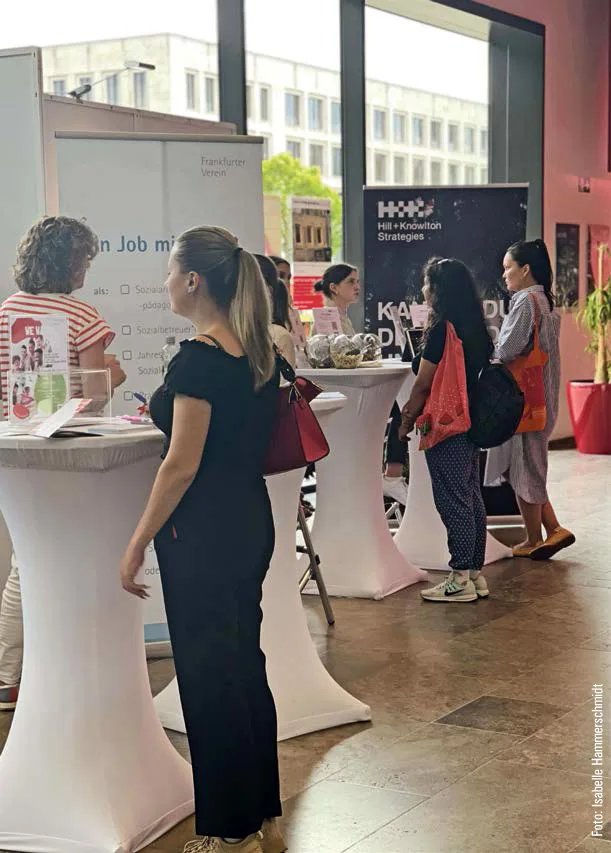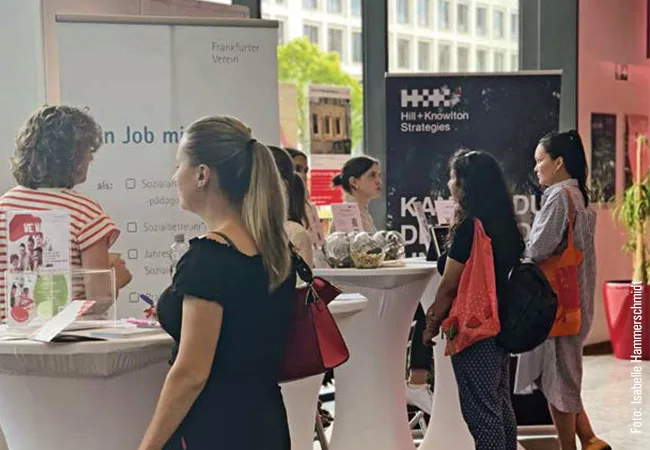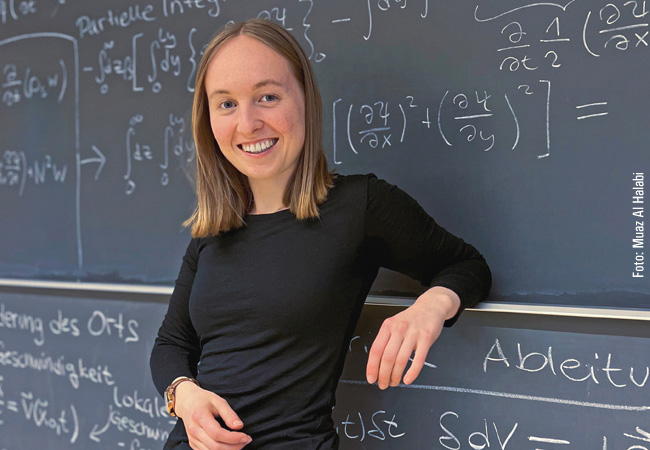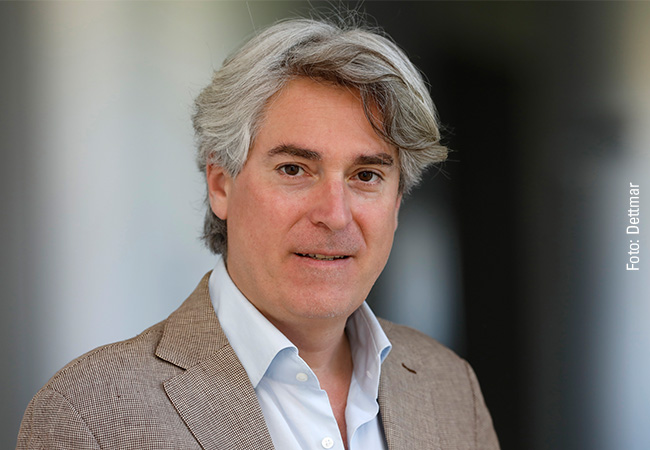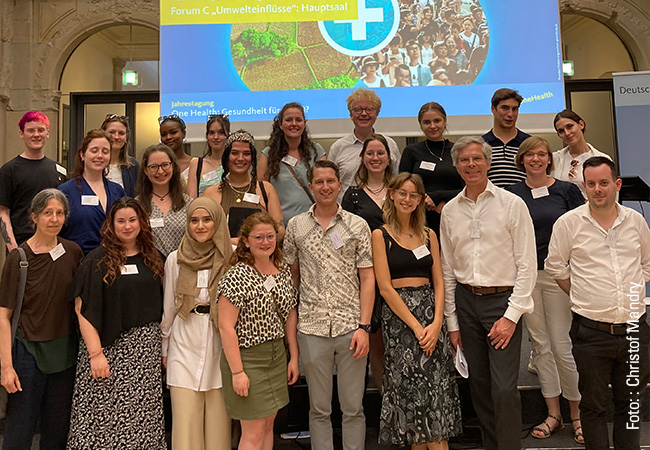A review of the ENTER_ZUKUNFT_HUMANITIES job fair
For many people, a degree is a step towards adulthood: They learn to organize themselves, start a part-time job, some also move to another city. Once they have completed their studies, all doors to the professional world are open to the fresh graduates – or are they?
Unfortunately, it’s not quite that simple, Sibel Ulucan explains. Ulucan is a career coach for international students in the Global Affairs Study and Teaching (Studium, Lehre, Internationales, SLI) department at Goethe University Frankfurt. We met Ulucan at ENTER_ZUKUNFT_HUMANITIES, one of four job fairs held at Goethe University this spring, which is funded by the ELLVIS “Successful Teaching and Learning – Diversity and Internationalism in Studies” project [Editor’s note: ELLVIS is the abbreviation of the project’s German name: “Erfolgreich Lehren und Lernen – Vielfalt und Internationales im Studium”]. One of the fair’s main goals is to offer “first-generation students” the opportunity of establishing relationships with potential employers. ENTER_ZUKUNFT_HUMANITIES is specifically directed at students of the humanities, cultural studies and social sciences, who often have to make an extra effort to find a job after their graduation.
In fact, a degree, especially in the humanities, does not prepare students for a specific career, making it all the more important for young people to understand early on how important soft and hard skills are. “In these kind of orientation events, I always call on students to acquire digital skills, for example, especially if they come from the humanities,” says Ulucan. In many cases, students already have prior knowledge, but don’t necessarily recognize this as a special skill. As such, the career advisor found that some students are quite familiar with Python, giving them a good chance of landing a trainee position in IT or consulting. Whatever the case may be, it is important that students look beyond their own horizons, recognize niches, and acquire specialized knowledge.
Most students are increasingly aware of this need to broaden their horizons. Take Nora, for instance, who is about to graduate with a degree in Cultural Anthropology and Gender Studies. For her, the end of her studies in many ways constitutes a turning point, which is why she has come to the fair to get some inspiration for the time after her graduation. For her, the Federal Foreign Office seems like a particularly interesting employer, she says.
The fact that employers are now much more open than they used to be works in favor to students of the humanities, cultural studies and social sciences. That’s precisely where the ENTER_ ZUKUNFT_HUMANITIES job fair comes in. Among the companies represented at the fair are many banks and consulting firms, which are not only looking to hire economists or computer scientists, but are also open to graduates from other fields of study. “The most important thing for them is how you present yourself, how committed you are and whether you are willing to learn new things,” says Ulucan, adding that companies are fully aware of what humanities and social science graduates have to offer – namely good analytical and communication skills.
Dorothee Schneiders points out that there are two reasons why it is mostly companies that are less likely to be associated with the humanities, cultural studies and social sciences that are represented at the fair. The organizer of the fair, she also works in the Global Affairs Study and Teaching department. On the one hand, traditional employers such as museums or publishing houses simply do not need to do any marketing, because graduates of the humanities, cultural studies and social sciences apply to them anyway. On the other hand, it is also about showcasing the wide range of possibilities and encouraging students to apply to companies in other sectors.
Leon, who is studying political science and sociology, is grateful for the job fair for the humanities. He believes that his studies focus too little on a post-degree professional orientation, adding that while in some ways it seems that all professional doors are open to you, at the same time, none of them are. A fair like this helps you find your bearings, he says, adding that he just attended an event held by a consulting firm in the Seminarhaus, which he liked so much that he is considering doing an internship there.
Economics students also could be found at the ENTER_ZUKUNFT_HUMANITIES fair, including Dara and Sinan. Both do not see themselves going into a traditional economics job after graduation, and want to use the fair as a source of inspiration. Dara would like a career focused on sustainability, and could imagine helping the public sector advance digitization. For Sinan, too, a job in a bank is not an option. That’s why he’s here today, to broaden his horizons.
Ulucan and Schneiders agree that a degree on its own is not enough to gain a foothold in the professional world. Much more important than that, they say, is to network and acquire additional knowledge that sets one apart from other applicants. And, of course, to take advantage of opportunities like the job fair to find out what possibilities exist – regardless of whether you come from the humanities, social sciences or economics.


